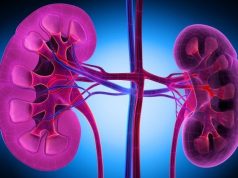Screening for all five social needs reported for 24.4 percent of hospitals, 15.6 percent of practices
THURSDAY, Sept. 19, 2019 (HealthDay News) — Most hospitals and physician practices are not screening for five key social needs associated with health outcomes, according to a study published online Sept. 18 in JAMA Network Open.
Taressa K. Fraze, Ph.D., from the Geisel School of Medicine at Dartmouth College in Lebanon, New Hampshire, and colleagues examined responses from 2,190 physician practices and 739 hospitals to the 2017 to 2018 National Survey of Healthcare Organizations and Systems to characterize screening for social needs.
The researchers found that 24.4 percent of hospitals and 15.6 percent of physician practices screened for all five societal needs (food insecurity, housing instability, utility needs, transportation needs, and experience with interpersonal violence); 8.0 and 33.0 percent of hospitals and practices, respectively, reported no screening. The most common screening was for interpersonal violence (56.4 and 75.0 percent of practices and hospitals, respectively), while the least common screening was for utility needs (23.1 and 35.5 percent in practices and hospitals, respectively). Higher rates of screening for all needs were seen for practices that were federally qualified health centers, bundled payment participants, primary care improvement models, and Medicaid accountable care organizations. The likelihood of screening was higher for practices in Medicaid expansion states and those with more Medicaid revenue.
“We found that organizations participating in payment reform models were more likely to screen, and that organizations that do not screen reported misaligned incentives as a major barrier to innovations in care delivery,” the authors write.
Copyright © 2019 HealthDay. All rights reserved.








